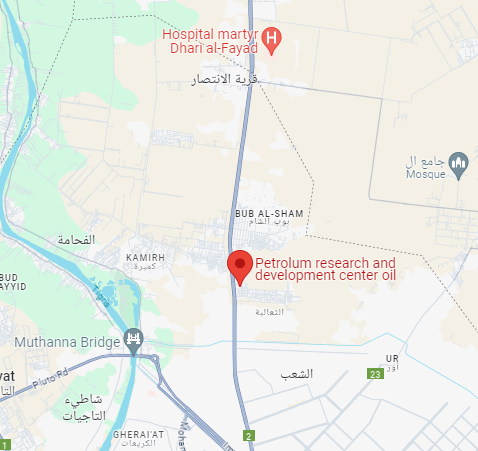(MFC) محاكاة رياضية للتصرف الكهروكيمياوي الإحيائي لخلية الوقود الإحيائية ثنائية الغرف
DOI:
https://doi.org/10.52716/jprs.v10i1.299الكلمات المفتاحية:
بوتلر-فولمر-مونود، حمأة المصافي النفطية، خلية الوقود الإحيائية، الطاقة المستدامة، فرق الجهدالملخص
في هذه الدراسة، تم تطوير نمذجة رياضية تعبر عن التفاعلات الكهروكيمائية الإحيائية عند حالة الإستقرار بهدف
محاكاة العلاقة بين فرق الجهد المسيطر و التيار المنتج و التي تحسب لخسائر قطب الأنود. هدفت الدراسة الى تحليل
أداء خلية الوقود الإحيائية ثنائية الغرف و المجهزة بقطبي أنود حيويين و التي غُذيَت بنماذج حقيقية من حمأة المصافي
بتركيز ١٣٨٩٠ ملغم\لتر. كشفت البيانات الكهربائية عن إنتاج COD النفطية و التي تحتوي على المكون العضوي
كثافة تيار أقصاها ٠٧,٦ أمبير\م ٣ عند فرق جهد ٨٣,١ فولت لهذا النوع من الوقود. بالإضافة الى ذلك، فإن تصرف
النتائج العملية أظهر هيمنة الخسائر الأومية على مجموع الخسائر الأخرى في فرق جهد الأنود مقارنة مع خسارة
التفعيل و خسارة انتقال الكتلة، بالتتابع. من جهة أخرى، فإن النموذج الرياضي المقترح قد أثبت تطابق كبير مع النتائج
الى ٩٦,٠ . تم قياس الطاقة المستدامة الفعلية المستحصلة من هذا النظام من (R المختبرية، حيث وصل معامل التحديد ( 2
و وجِد بأن الطاقة المستدامة المنتجة من هذا النظام تظهر عند (RDAP) خلال حساب نقصان الإختزال لجهد الأنود
ربط مقاومة خارجية مقدارها ٦,١٧ كيلوأوم.
التنزيلات
منشور
كيفية الاقتباس
إصدار
القسم
الرخصة
الحقوق الفكرية (c) 2020 Rusul M. Khazaal, Zainab Z. Ismail

هذا العمل مرخص بموجب Creative Commons Attribution 4.0 International License.














